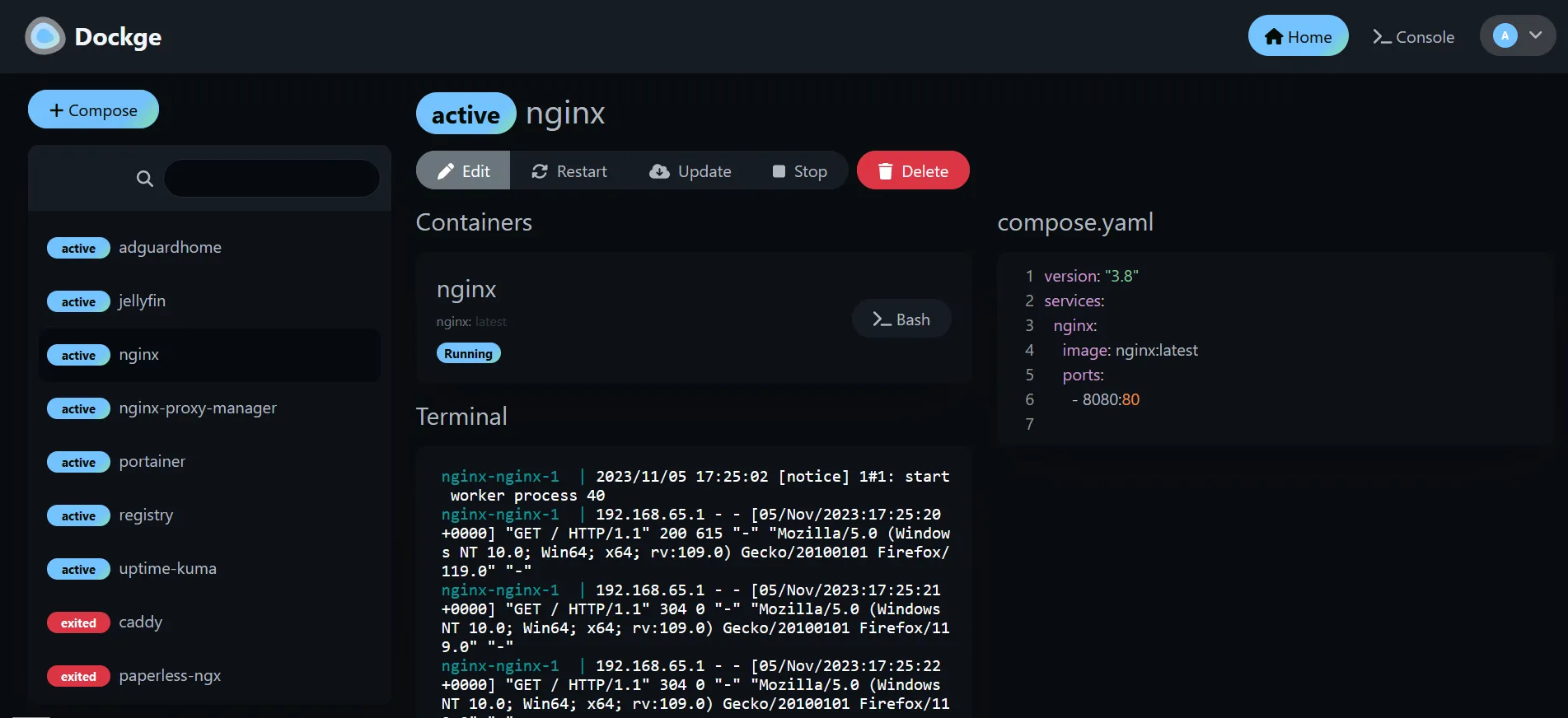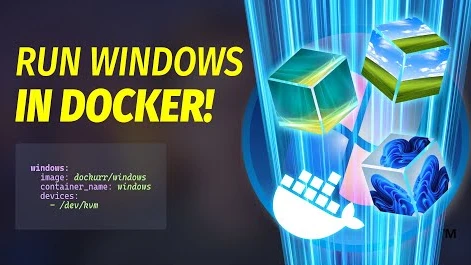Dockge: The Ultimate Docker Compose Manager for Modern Self-Hosters
In the evolving world of containerized infrastructure, managing Docker Compose projects can be either a seamless dream or an administrative nightmare. For those who want power, clarity, and elegance in managing their Docker Compose stacks—without relying on bloated dashboards—meet Dockge.
Developed by Louis Lam, the creator of Uptime Kuma, Dockge is a sleek, self-hosted solution for managing your docker-compose.yaml files in a user-friendly, modern web UI—directly from your own infrastructure.
🚢 What Is Dockge?
Dockge is a Docker Compose manager that acts as a control center for all your containerized applications. Unlike heavyweight orchestration platforms like Portainer or Rancher, Dockge doesn’t abstract away your Compose files—instead, it embraces them.
It runs in your browser, provides a beautiful and responsive interface, and gives you full control over managing, editing, and deploying Docker Compose stacks.
If you’ve been manually juggling docker-compose up, down, logs, and pull across multiple folders and terminals, Dockge will feel like a leap into the future.
🔧 Core Features That Make Dockge Shine
🧩 File-Centric Management
Dockge doesn’t lock you into a database or an internal config. Your compose.yaml files live on disk, exactly where you put them. Want to edit them outside Dockge? Go ahead. Dockge simply reflects and operates on your actual file structure.
🖥️ Clean, Reactive UI
Built with modern web technologies (likely Vue/React), Dockge’s interface is snappy and beautiful. Navigating your projects, spinning containers up and down, and checking logs feels almost instantaneous.
✍️ Built-in YAML Editor
No need to SSH in or fumble through nano. Dockge provides an in-browser YAML editor with syntax highlighting, so you can tweak your Compose files in real-time, from any device.
📦 Manage Container Lifecycle
With just a few clicks, you can:
- Start or stop containers
- Restart entire stacks
- Pull new images
- View live logs
- See environment variables
📁 Multiple Project Support
Dockge supports multiple projects, each represented as a folder containing a Compose file. Think of it as a workspace manager—ideal for homelabbers running various self-hosted services like Home Assistant, Nextcloud, Pi-hole, Jellyfin, etc.
🌐 Web Terminal
Need to run a one-off command inside a container? The integrated web terminal gives you shell access right in the browser, without needing to docker exec manually.
🛠️ Convert Docker Run to Compose
This underrated feature lets you paste a docker run command and convert it into a docker-compose.yaml file. It’s a brilliant way to transition your one-off containers to managed stacks.
🎯 Who Is Dockge For?
Dockge is tailor-made for:
- 🧑💻 Developers who want more control over containerized environments.
- 🏠 Self-hosting enthusiasts looking for clean, no-nonsense management of their homelab apps.
- 🧠 Tech-savvy hobbyists who don’t want to learn Kubernetes or manage overkill dashboards.
- 📦 Minimalists who believe that good tools should be powerful and elegant.
🚀 Getting Started with Dockge
Setting up Dockge is incredibly simple—if you already use Docker Compose, you’re halfway there. Here’s a high-level overview:
📦 1. Clone the Repository
git clone https://github.com/louislam/dockge /opt/dockge
📁 2. Move Into the Directory
cd /opt/dockge
🏗️ 3. Start the Service
docker compose up -d
By default, Dockge runs a web server where you can start managing your Compose projects immediately. It reads your existing file structure, meaning there’s no database to configure and no vendor lock-in.
🔐 4. Optional: Add Auth and SSL
You can easily integrate it behind a reverse proxy with basic auth or OAuth (via Nginx, Traefik, etc.) to keep your setup secure.
💬 Community & Support
Dockge is a growing open-source project with an active and supportive community. Here’s how to get involved:
- 🗣️ Join GitHub Discussions
- 🐞 Report bugs and suggest features via GitHub Issues
- 🤝 Contribute code or docs to help the project grow
Louis Lam has a reputation for responsiveness and quality (just look at Uptime Kuma’s success), so Dockge is in good hands.
🧭 Dockge vs Alternatives
| Feature | Dockge | Portainer | Yacht |
|---|---|---|---|
| Compose-first design | ✅ Yes | ❌ No (UI-driven) | ✅ Yes |
| File-based | ✅ Yes | ❌ No | ✅ Yes |
| Lightweight UI | ✅ Blazing fast | ❌ Heavy | ✅ Moderate |
| Conversion Tools | ✅ docker run → compose | ❌ No | ❌ No |
| Terminal Access | ✅ Built-in | ✅ | ❌ No |
| Multi-project | ✅ Excellent | ✅ | ✅ |
🧠 Final Thoughts: Should You Use Dockge?
Absolutely—especially if you value clean interfaces and control.
Dockge bridges the gap between command-line flexibility and modern user interfaces. It’s the perfect tool for self-hosters and developers who want a non-intrusive, elegant, and functional way to manage Docker Compose environments.
Whether you’re managing a fleet of Raspberry Pis, running a mini data center at home, or just hosting your personal blog and media server, Dockge will make your life easier.
🔗 Explore More
👉 GitHub: https://github.com/louislam/dockge
👉 Try it, star it, and join the conversation. Your containers will thank you.







Post Comment